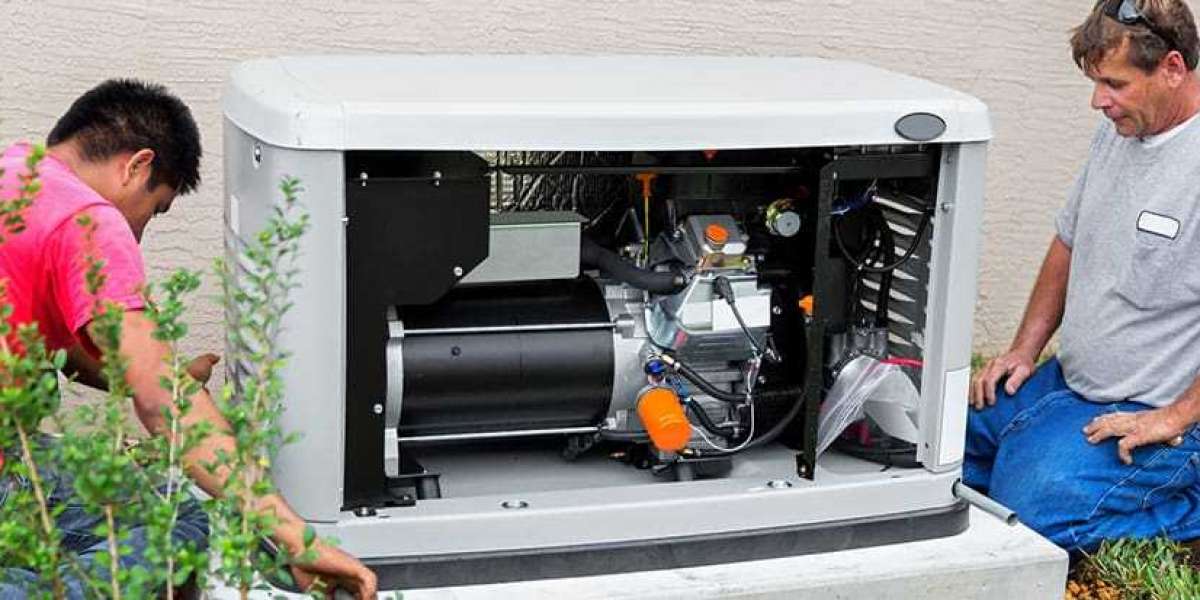Today, uninterrupted access to electricity is necessary. Be it a residential property, a commercial establishment, or an industrial facility, power outages can cause huge interruptions. Installing a generator is a proactive solution that ensures your property remains functional and secure during emergencies or utility failures. Proper generator installation not only provides peace of mind but also protects your equipment and operations.
Why Invest in a Generator?
Power outages are unpredictable and can result from storms, grid failures, or unforeseen technical issues. A generator acts as a reliable backup power source, ensuring you’re never left in the dark. For businesses, it minimizes downtime, protects sensitive equipment, and maintains productivity. For homeowners, it ensures critical systems like heating, refrigeration, and medical devices continue to function without interruption.
Types of Generators
There are various types of generators available, and selecting the right one depends on your power needs and application.
Portable Generators are versatile and ideal for temporary or emergency use. They are cost-effective and easy to move but require manual setup and fueling, often with gasoline or propane.
Standby Generators are permanently installed and automatically activate during a power outage. Running on natural gas or propane, they are suitable for both residential and commercial applications, providing seamless power with minimal user intervention.
Inverter Generators are lightweight, quiet, and fuel-efficient, making them perfect for smaller applications like camping or powering sensitive electronics.
Industrial Generators are designed for large-scale power needs and are commonly used in factories, hospitals, and data centers. They are robust, durable, and capable of running for extended periods.
The Generator Installation Process
A professional determines the size and type of generator that is right for your property before installing one. This professional will consider how much wattage is required to power necessary appliances and systems during an outage.
The generator installation site is chosen based on safety and functionality. The generator should be placed on a level surface with adequate ventilation, away from doors, windows, and combustible materials. Then, the generator is connected to your property's electrical system using a transfer switch, which prevents backfeeding and ensures safe operation.
For standby generators, the fuel source—be it natural gas or propane—is connected and tested to ensure a steady supply. Lastly, the generator is put through comprehensive testing to make sure it is working correctly and integrating well with your electrical system.
Benefits of Professional Generator Installation
Professional installation ensures your generator operates safely and efficiently. Experts handle all electrical and fuel connections, ensuring compliance with safety standards and local building codes. They also ensure the generator is correctly sized for your power needs and installed to meet manufacturer specifications. This approach protects your investment and maintains any applicable warranties.
Maintaining Your Generator
To extend the life of your generator, regular maintenance is essential. This includes oil changes, battery checks, and fuel supply inspections. Load testing should also be performed periodically to verify the generator’s capacity and reliability under real-world conditions. Partnering with a professional for scheduled maintenance ensures your generator remains in peak condition.
Cost of Generator Installation
The cost of installing a generator depends on the type, size, and complexity of the installation. Portable generators are more affordable, while standby generators require a higher initial investment due to additional components like transfer switches and fuel connections. Despite the upfront costs, a generator can provide long-term savings by protecting against downtime and potential property damage during power outages.
Conclusion
Generator installation is a valuable investment for anyone seeking reliable backup power. Whether for residential comfort or commercial operations, a properly installed generator ensures you’re prepared for unexpected outages. Partnering with experienced professionals guarantees safety, compliance, and long-term satisfaction. Don’t wait for the next power outage to disrupt your life—invest in a generator today and enjoy uninterrupted power and peace of mind.
FAQs About Generator Installation
What size generator do I need?
The size depends on your power requirements. A professional assessment considers the appliances, systems, and devices you want to run during an outage to recommend the right generator size.How long does it take to install a generator?
The installation process typically takes 1-3 days, depending on the type of generator, site preparation, and complexity of the electrical and fuel connections.Can I install a generator myself?
DIY installation is not recommended as it involves complex electrical and fuel connections. Professional installation ensures safety, compliance with codes, and proper functioning.What maintenance does a generator require?
Generators need regular oil changes, battery checks, fuel inspections, and periodic load testing to ensure optimal performance. A professional servicing schedule is highly recommended.Are standby generators noisy?
Modern standby generators are designed to operate quietly, especially when placed in appropriate enclosures. Noise levels vary by model, but most are comparable to an air conditioning unit.







